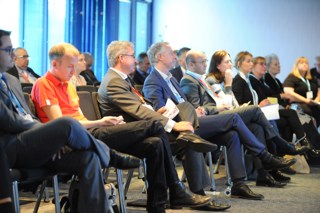Britain’s new National Infrastructure Commission (NIC) is a key step on the road to dramatic improvements in business mobility, says mobility specialist TMC.
Welcoming more than £1 billion investment in physical and electronic infrastructure in the autumn statement, TMC managing director, Paul Hollick, said: “Mobility will be a transformational trend for businesses in the next decade. By bringing together fleet, travel and payments, it will expand employees’ mobility options, allow people to work more productively and give companies far more visibility over costs than they have today.
“I especially welcome the news that the Treasury has commissioned the NIC to seek out new technologies with real economic potential. Digitalisation, the internet of things, big data, and artificial intelligence are key to synergising the UK’s travel and communications infrastructure to support future mobility.”
The NIC will become a permanent executive agency in January 2017, responsible for coordinating the UK’s future needs for nationally significant infrastructure.
The Government’s spending plans in this area include nearly £1bn to expand digital communication networks, £80 million for smart ticketing in public transport and £100m for testing self-driving vehicles.
Hollick, who is also chairman of the Institute of Car Fleet Management (ICFM), said: “At the business-to-business level, TMC is already making excellent progress with data and payments partnerships in the UK and Europe. But for everyone to reap the benefits of business digitalisation we need Government-level investment in new technologies and in connecting existing infrastructure to them.
“There is much talk about business mobility in fleet circles. But what exactly does ‘mobility’ look like and which technologies are most promising? The Government is about to spend millions on finding the answer.
“The fleet industry needs to be ready to work with the new commission as it sets out to define the UK’s policies around mobility.”



















Login to comment
Comments
No comments have been made yet.